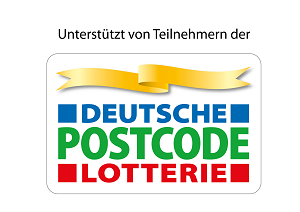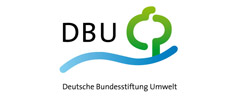Taking responsibility for safe water and adequate sanitation in rural Romania
In the frame of the annual professional water and wastewater conference EcoImpuls in Timisoara, Romania, Aquademica organized a workshop for mayors in the region. The aim was to raise awareness about the responsibilities of the mayors to safely manage water and sanitation in their rural areas.
27.10.2016 |

A workshop for mayors was organised by Aquademica as part of the annual professional water and wastewater conference EcoImpuls in Timisoara, Romania, Aquademica. The aim was to raise awareness about the responsibilities of the mayors to safely manage water and sanitation in their rural areas.
Water and sanitation safety planning (WSSP) is a health based approach and follows the WHO Guidelines for Drinking Water Quality and Safe Use of Wastewater and Human Excreta. WECF developed this approach further to reach small communities and to improve the conditions.
Monica Isacu, Aquademica, introduced into the topic and explained how WECF and Aquademica have been working with water and sanitation safety planning during the past three years in Romania.
The approach becomes more and more important for the rural areas as water safety planning becomes mandatory in the EU: Following the public consultation on the quality of drinking water in 2014, the European commission changed the Annexes of the Drinking Water Directive. “The new Annex II provides an option to perform the drinking water monitoring in around 100,000 water supply zones in Europe in a more flexible way, provided a risk assessment is performed ensuring full protection of public health. It follows the principle of ‘hazard analysis and critical control point’ (HACCP) used already in food legislation, and the water safety plan approach laid down in the WHO Guidelines for Drinking Water Quality. These amendments will allow a better and more problem-oriented monitoring of small water supplies. The new monitoring and control system allows to reduce unnecessary analyses and to concentrate on those controls that matter. The amended directive entered into force on 27th October 2015. It has to be transposed into national legislation within a period of 24 months by the EU Member States.” See more details.
That means that also Romania has to implement the health based approach into their legislation by 2017. Professor Mihaela Vasilescu explained the water safety plan approach, the risk assessment and the resulting implementation. She was involved in a PHARE Project 2006/018-147.03.03/05.06 “Technical assistence for the implementation in Romania of the requirements of Drinking Water Directive 98/83/EC”, under the shared responsibility of the Ministries of Health and Environment. Within the frame of this project it was developed the methodology to elaborate a Water Safety Plan (WSP) that was firstly tested in Romania on the pilot city of Ploiesti, Prahova County. The results were the following: identification of the stakeholders and their responsibilities, description of the drinking water supply system, identification of the hazards and hazardous events, establishment of risk scores, recommendations on how to mitigate or even eliminate the risks, dissemination of information.
“We are glad to have some funding from the German Environmental Ministry to support the activities here to develop the water and sanitation planning methodology for small communities,” said Claudia Wendland, water and sanitation expert at WECF. “We see that it is crucial to include sanitation and wastewater management into the planning because inadequate sanitation jeopardizes the efforts related to water quality, that is why we developed the water and sanitation safety planning approach.”
The participants were very interested and the first pilot was decided to be carried out in the village of Manastur. The WECF WSSP Compendium will be used as study methodology. The water and sanitation safety planning in this village will serve as a model for other villages in Romania as well.

Related News
Calling for periods free from plastic & hazardous chemicals
Letter to Frédérique Ries, MEP, European Parliament on behalf of the #BreakFreeFromPlastics movement
04.09.2018
Together for sustainable sanitation and water security worldwide!
Stockholm, 26-31 Aug 2018: WECF participated in the World Water Week 2018 to further support the worldwide implementation of SDG 6
01.09.2018
Fifth meeting of the Expert Group on Equitable Access to Water and Sanitation, 26 - 27 June 2018
WECF shares experiences on developing and implementing Equitable Access Action Plans
27.07.2018
National Round Table and Training on Drinking Water Issues and Priorities in Macedonia
Working Package 2 – Educational measures for responsible institutions and drafting of regulations, among the on-going project „Water and Sanitation Safety Planning in Romania, Albania, and FYR Macedonia”
27.07.2018
Training for Teachers on Water and Sanitation Safety Planning
Women in Development and WECF organise a 2-day workshop in Shkodra region, Albania
27.07.2018






































